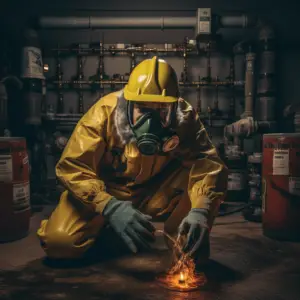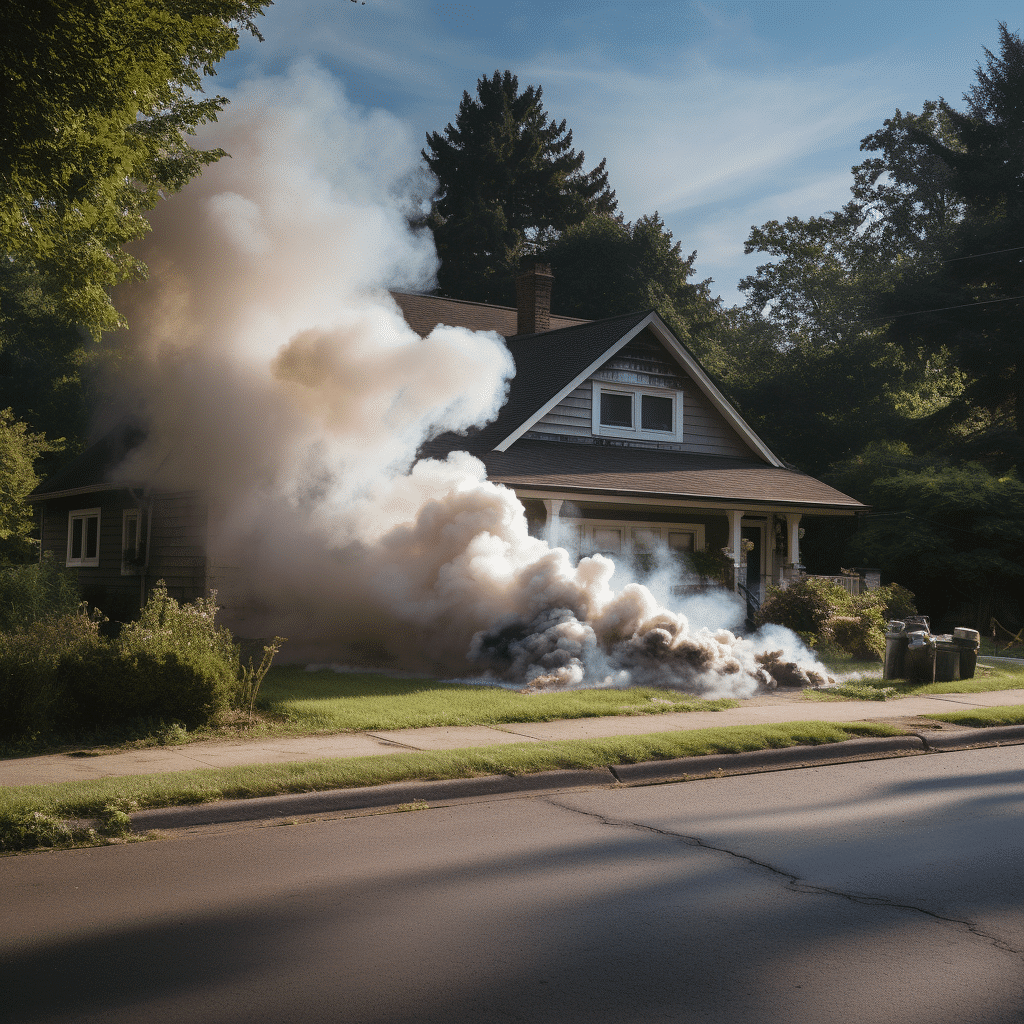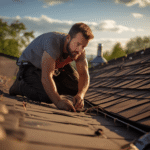Table of Contents
Introduction
Natural gas is a helpful energy source for us. But, it’s important to recognize the risks of gas leaks. They can be hazardous to our health, and even lead to explosions! Knowing how to detect a gas leak is key to keeping us safe.
Look out for signs of a leak. Smell is a common indicator. Natural gas has no scent, but mercaptan is added to give it a detectable smell – like rotten eggs or sulfur. If you sense this odor in your home, it could be a gas leak.
Listen for hissing or blowing sounds from gas appliances or pipes. This could point to a leak. Dead plants or vegetation near the gas meter may also suggest a leak in the ground.
Check your utility bill for increased usage. Unexpected jumps in consumption might mean escaping gas.
To stress the importance of being aware of gas leaks, I will share a true story. In 2015, an apartment building in New York City experienced a fatal explosion due to a gas leak. Two people died and many were injured. This emphasizes why it’s vital we all know how to spot and report gas leaks.
Signs and Symptoms of a Gas Leak

Signs and Symptoms of a Gas Leak
A gas leak can have serious consequences, so it is important to be able to identify the signs and symptoms. Here are five key indicators that may suggest a gas leak is present:
- Unusual odor: If you detect a strong, unpleasant smell similar to rotten eggs or sulfur, it could be a sign of a gas leak. Natural gas and propane are odorless, but utility companies add a distinct odorant to help detect leaks.
- Hissing or whistling sound: If you hear an unusual hissing or whistling sound near a gas appliance or pipeline, it could indicate a gas leak. Pay attention to any unusual noises and take immediate action if you suspect a leak.
- Dead vegetation: If you notice a patch of dead or dying vegetation, especially in an otherwise healthy area, it could be a sign of a gas leak underground. Gas leaks can affect plant growth and cause vegetation to wither.
- Bubbles in water: If you see bubbles or a milky appearance in standing water near a gas line, it may be a sign of a gas leak. Gas bubbling through water can create a distinctive pattern and indicate a leak.
- Physical symptoms: If you or others in your household experience unexplained physical symptoms such as headaches, dizziness, nausea, or fatigue, it could be a sign of a gas leak. Gas leaks can cause health issues, so it is important to be mindful of these symptoms.
In addition to these signs, it is essential to remember that not all gas leaks have noticeable symptoms. Regular gas leak inspections and maintenance by professionals are vital to ensure safety.
Story:
John, a homeowner, experienced a gas leak without even realizing it. One day, he noticed a foul odor in his basement but dismissed it as a temporary issue. Weeks later, he started experiencing severe headaches and decided to call a professional for help. It turned out that there was a gas leak in his basement, which had been causing the odor and his symptoms. John learned the importance of being aware of the signs and symptoms of a gas leak and taking immediate action to ensure the safety of himself and his family.
Trust me, you’ll know it’s a gas leak when your nose starts looking for a vacation.
Smell of Gas
The scent of gas is a clear sign something’s wrong. It’s often compared to rotten eggs or sulfur and is added to natural gas for safety. If you smell it, take action right away.
Gas can be dangerous. Leaks can happen in homes, workplaces, and public areas. Watch out for the smell and other signs, like dizziness, headaches, nausea, fatigue, and difficulty breathing. Symptoms vary depending on the leak and how sensitive you are.
Sarah’s experience shows why it’s important. One night, she smelled rotten eggs in the kitchen. She evacuated and called for help. The fire department confirmed it was a gas leak from a faulty stove.
Sarah was praised for recognizing the smell and leaving the area. Her story proves you should never ignore it. Follow protocol by leaving and calling emergency services. Safety first!
Hissing Sound
When it comes to gas leaks, one tell-tale sign is a hissing sound. It’s important to know this indicator of danger and never ignore it.
- A hiss can be heard if there is a break or crack in the gas line.
- Near appliances or equipment, a hiss could signal a leak.
- Outdoors near the meter or pipe, a hiss could suggest an issue with infrastructure.
Each situation can have its own unique details, so caution and professional help is always essential.
In the past, people have not recognized the significance of hissing sounds during a gas leak. This has sadly led to explosions or even death. So, be vigilant and proactive when it comes to detecting unusual sounds like a hiss related to a potential gas leak.
Dead or Discolored Vegetation
Yellow or brown leaves? Wilting plants? Stunted growth? Patches of dead vegetation? Unusual odors? Insect infestations? All of these could be signs of a gas leak!
Dead or discolored vegetation alone can’t confirm it, but if you see a combination of these signs, take precautions and contact the relevant authorities.
Pro Tip:
If you think there’s a gas leak, get out of the area and call a professional gas leak detection service. They have the know-how and tools to evaluate the situation and avoid any potential risks.
Immediate Actions to Take if You Suspect a Gas Leak
Gas leaks can be dangerous and require immediate action. If you suspect a gas leak, it is important to take the following steps to ensure your safety and the safety of others:
- Evacuate the area: If you smell gas or suspect a leak, leave the premises immediately. Do not use any electrical devices, including light switches or phones, as they can create sparks that could ignite the gas.
- Call emergency services: Once you are a safe distance away, call your local gas company or emergency services to report the leak. They will be able to send a professional to assess the situation and make any necessary repairs.
- Avoid open flames: Do not light matches, candles, or any other open flames if you suspect a gas leak. Even a small spark could cause an explosion.
- Ventilate the area: If it is safe to do so, open windows and doors to allow fresh air to circulate and help dissipate the gas. This can help reduce the risk of a potential explosion.
- Do not attempt to fix the leak yourself: Gas leaks should only be handled by trained professionals. Do not try to locate or fix the leak yourself, as this could be dangerous and potentially make the situation worse.
- Stay outside until the all-clear is given: Once emergency services have arrived and confirmed that it is safe to reenter the building, you may return. However, it is important to follow any instructions given by the professionals on the scene.
Steps to Take When Suspecting a Leak
It is crucial to take immediate action if you suspect a gas leak to avoid the potential dangers associated with gas leaks, such as explosions or carbon monoxide poisoning. By following these steps, you can help ensure the safety of yourself and others.
Remember, gas leaks should always be treated as an emergency. Stay vigilant and be aware of any unusual smells or signs of a gas leak, and take prompt action to protect yourself and those around you.
Better to evacuate the area and be safe than to become a human marshmallow in a gas leak fire pit.
Evacuate the Area
If you think there’s a gas leak, you must act fast to stay safe. Here are 3 steps to help:
- Get away quick. Leave your stuff & keep moving away from the gas leak.
- Tell the authorities. Call the Fire Dept or Emergency Services & give them your location & info about the leak.
- Wait for instructions. Follow their advice & wait for further instructions on what to do next.
Every minute counts, so don’t delay alerting the right people. It’s important to prioritize safety in these hazardous situations. Safety.com states natural gas leaks can be invisible & odourless, so quick evacuation is key to prevent disaster.
Do Not Use Any Ignition Sources
For any suspected gas leak, utilizing any ignition source is really unsafe. These sources may involve open fires, sparks from electrical items, or even something as basic as switching on a light. To stop an explosion or fire, it’s essential to prevent using any ignition sources near a probable gas leak.
- Put out all open flames right away.
- Do not use any tech that could make sparks.
- Don’t smoke or light matches or lighters.
- No turning on electric switches or appliances.
- Do not use anything that needs electricity, such as phones or torches, in the region of the leak.
Recall that even a small spark can set off the gas and cause severe consequences. Gas leaks are very dangerous and may rapidly become worse if the right measures aren’t taken.
If you think there’s a gas leak, don’t underestimate the hazard. Act quickly and ensure everyone’s safety by following these rules. Your speedy thinking and following these safety steps could save lives and avoid property damage. Be alert and prioritize safety above all else for gas leaks.
Contact Emergency Services
In case of a gas leak, contacting emergency services is essential. Taking quick action can protect everyone and prevent hazardous situations.
Follow these steps when making the call:
- Dial 911: This number connects you to the right authorities for handling gas-related emergencies.
- Give exact details: Clearly mention that you suspect a gas leak and give your location. Be as precise as possible for fast help.
- Listen to instructions: The operator may ask you to evacuate or take safety precautions. Do not hesitate to obey.
- Refrain from using electronics: Do not use any electronic devices, such as phones and lights, as they may ignite the gas in high concentrations.
Always remember: contacting emergency services rapidly can save lives and reduce harm. Stay composed but act quickly in these scenarios. Moreover, gas leaks are dangerous and should always be tackled by experts.
According to the NFPA, around 73,000 gas-related incidents occur in the US annually, leading to injuries, fatalities, and property loss.
Preventing Gas Leaks
Preventing Gas Leaks
Gas leaks can be dangerous and even fatal if not addressed promptly. It is crucial to take preventive measures to ensure the safety of your home and family. Here is a step-by-step guide to help you prevent gas leaks:
- Regular Maintenance: Schedule regular inspections of your gas appliances and pipelines by a certified professional. Ensure that they are properly installed and maintained to minimize the risk of leaks.
- Check for Signs: Be vigilant for any signs of a gas leak, such as a rotten egg smell, hissing or whistling sounds near gas appliances, or dead plants in the vicinity. These can indicate a potential leak, and immediate action is required.
- Ventilation: Ensure proper ventilation in areas where gas appliances are installed, such as the kitchen or utility room. Good airflow can help prevent the buildup of gas and reduce the risk of leaks.
- Install a Gas Detector: Consider installing gas detectors in your home. These devices can detect the presence of gas and alert you if there is a leak, providing an early warning system for potential hazards.
- Be Careful with DIY: Avoid DIY repairs or modifications to gas appliances or pipelines. It is best to leave these tasks to professionals who are trained and experienced in handling gas-related issues.
- Educate Yourself: Stay informed about gas safety practices and procedures. Know how to shut off the gas supply in case of an emergency and teach your family members the same.
The Importance of Regular Gas Appliance Maintenance for Safety
A gas leak can have serious consequences, so it is crucial to take preventive measures. By following these steps, you can minimize the risk of gas leaks and ensure the safety of your home and loved ones.
In addition, it is important to note that gas leaks are responsible for numerous incidents of property damage and injuries each year. According to the National Fire Protection Association (NFPA), faulty gas equipment and leaks are a leading cause of home fires. Stay vigilant and prioritize gas safety to avoid such incidents.
Regularly maintaining your gas appliances is like keeping up with your ex’s social media – you never know when they’ll blow up in your face.
Regular Maintenance of Gas Appliances
Regular maintenance of gas appliances is a must. Otherwise, gas leaks may occur, risking property and life. Here’s what to remember:
- Inspect appliance for signs of wear and tear.
- Clean appliance to remove dust and debris.
- Check gas connections for leaks or loose fittings.
- Test safety features, such as CO detectors and flame sensors.
- Follow the manufacturer’s guidelines.
- Hire a technician for annual servicing and thorough inspections.
Regular maintenance not only extends appliance life, but also provides peace of mind. Setting reminders for inspections can help avoid accidental neglect. Minor issues can become major safety concerns if ignored.
Take control of your safety: prioritize maintenance, stay vigilant, protect yourself and your loved ones, and enjoy a well-maintained home. Take action now!
Proper Installation of Gas Appliances
John was super excited about his new stove – but then the unthinkable happened! Without professional help, he installed it and a gas leak went undetected for days. This caused a huge explosion in his kitchen! We can learn from this story: the right installation of gas appliances is key to stop gas leaks.
Here are the steps to follow:
- Place the appliance in a well-ventilated area away from flammables.
- Use appropriate fittings and connectors to join the appliance to the gas supply.
- Conduct a leak test with a soap and water solution. If bubbles appear, there’s a leak that needs addressing!
And don’t forget: get a professional technician trained in gas appliance installation for expert guidance. Plus, regular maintenance is essential. That includes checking for wear and tear, cleaning filters, and proper ventilation.
Being Mindful of Gas Safety Precautions

Gas safety is essential for everyone’s safety. To reduce the risk of gas leaks, we need to take some simple steps. Here’s a 3-Step Guide:
- Get Regular Maintenance: Schedule yearly inspections of gas appliances, like stoves and furnaces, so issues can be spotted early.
- Have Proper Ventilation: Ensure vents are clear of dust and debris. When using gas appliances indoors, keep windows open or use exhaust fans.
- Install Carbon Monoxide Detectors: Install CO detectors on each level of your home near bedrooms. They’ll sound an alarm if CO is present.
In addition, teach household members to recognize the smell of natural gas. And if there’s a gas leak, take prompt action. Don’t use electrical switches or plug/unplug devices, as this may cause fire or explosion.
We all have a responsibility to be aware of gas safety precautions and make sure our family and neighbors know too. Taking these steps is important for everyone’s safety.
Conclusion
It’s important to spot gas leaks for the safety of you and your loved ones. Follow these steps and avoid potential risks.
- How to spot a leak? Firstly, be aware of any strange smells like natural gas or rotten eggs. This could mean there’s a leak close by and you should act quickly.
- Secondly, look out for physical signs like dead plants or condensation on walls or windows. Also, if you hear a hissing sound near your gas appliances, it could indicate there’s a broken connection or pipe.
- Finally, install detectors for elevated carbon monoxide levels, a sign of a gas leak.
Protect yourself now!
Frequently Asked Questions
1. How do I spot a gas leak?
Some common signs of a gas leak include a strong odor of rotten eggs, hissing or whistling sounds near gas appliances, dead plants or vegetation near gas lines, and a white cloud or fog-like mist around a gas line.
2. What should I do if I suspect a gas leak?
If you suspect a gas leak, it’s important to take immediate action. Leave the area and evacuate everyone from the building. Avoid using any electronic devices, open flames, or anything that could ignite the gas. Once you are at a safe distance, call your gas company or emergency services.
3. Can a gas leak be harmful?
Yes, a gas leak can be extremely dangerous and harmful. Natural gas is highly flammable and can lead to explosions or fires if ignited. Breathing in gas fumes for an extended period can also cause health issues, including difficulty breathing, headaches, dizziness, nausea, and fatigue.
4. How can I prevent gas leaks?
To prevent gas leaks, make sure all gas appliances are properly installed and maintained. Regularly inspect gas lines and connections for any signs of wear or damage. Avoid using excessive force or improper tools when handling gas fittings. It’s also essential to install and regularly test carbon monoxide detectors in your home.
5. Are gas leaks common?
While gas leaks are not extremely common, they do occur. It’s important to be vigilant and aware of the signs of a gas leak to ensure your safety and that of those around you. Regular maintenance, inspections, and following safety guidelines can significantly reduce the risk of gas leaks.
6. Should I try to fix a gas leak myself?
No, you should never try to fix a gas leak yourself. Gas leaks should be handled by trained professionals who have the knowledge and expertise to safely address the issue. Attempting to fix a gas leak without the proper skills and equipment can be extremely dangerous and may worsen the situation.

